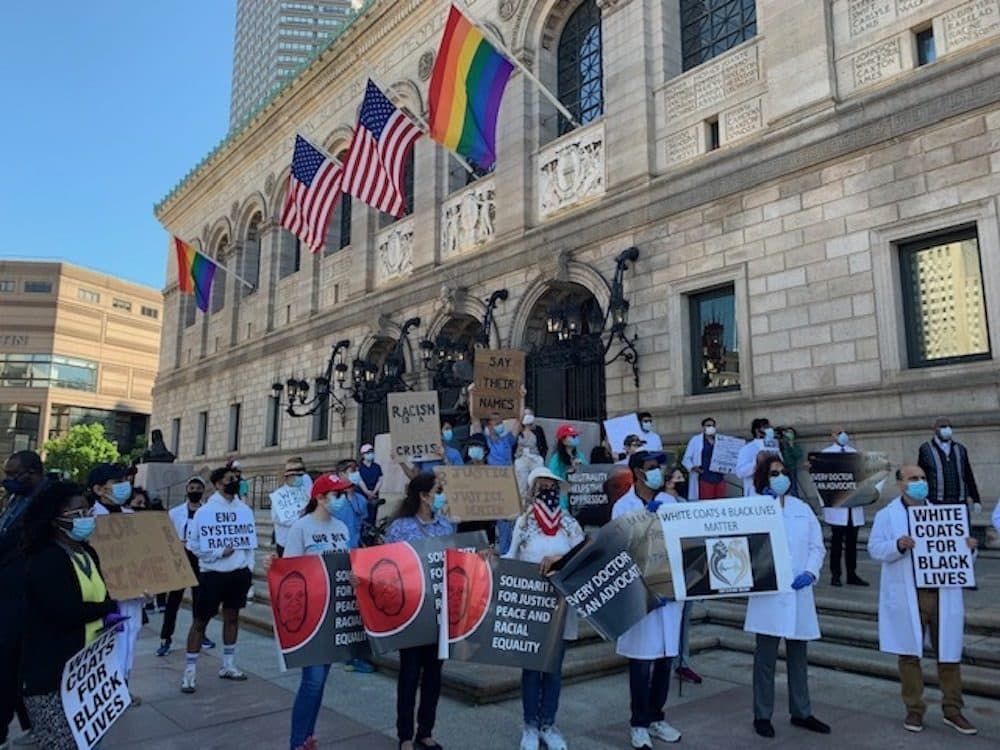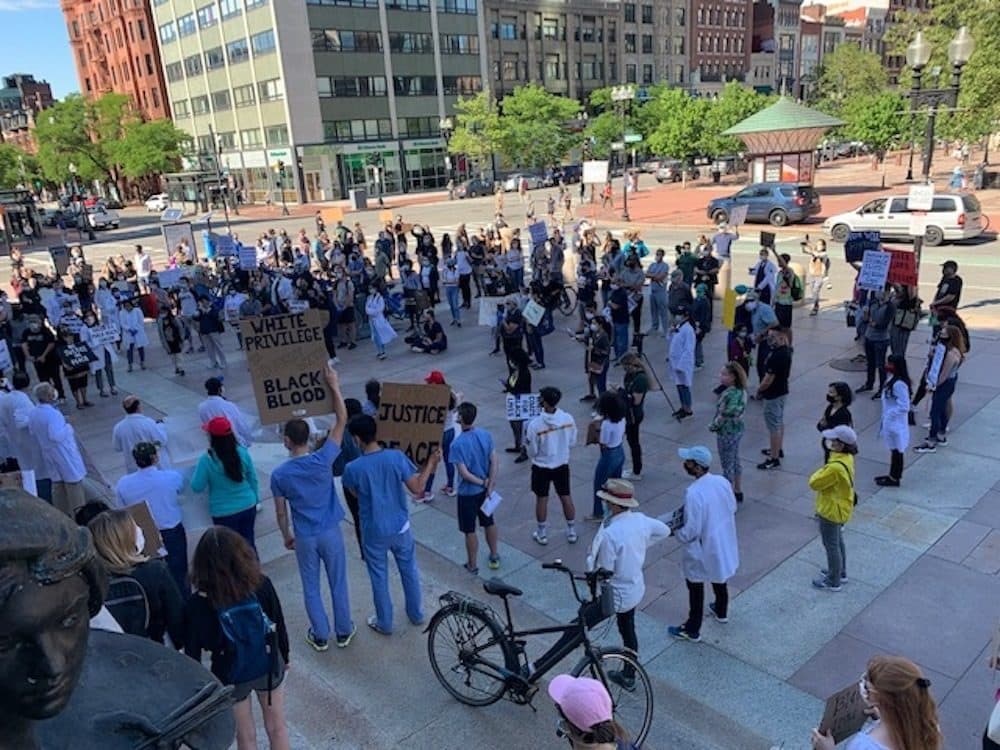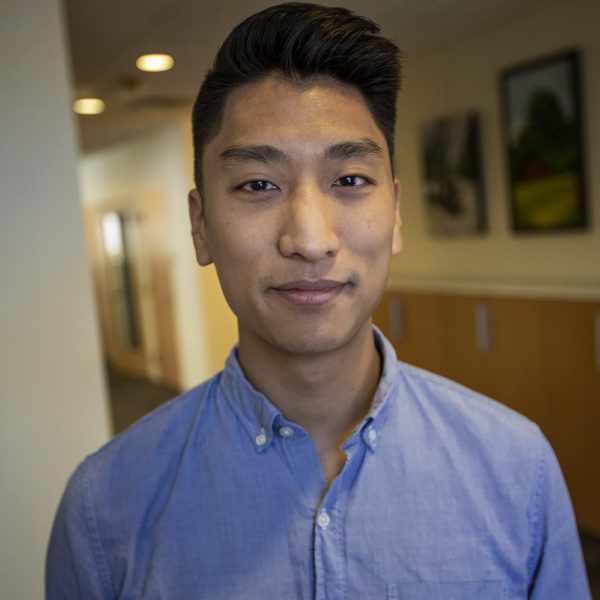Advertisement
'White Coats For Black Lives': South Asian Doctors Rally To Call For Racial Justice

As protests against racism and police brutality continue in Boston, groups of Pakistani and Indian doctors are lending their voices to the call for racial justice.
They gathered in Boston's Copley Square on Sunday evening. Many of the attendees held signs, some reading "White Coats For Black Lives."
The rally, which drew roughly a hundred people, many wearing lab coats and blue scrubs, was organized in part by of the Association of Pakistani Physicians of New England and the Indian Medical Association of New England.
"There is a problem in our culture, maybe in ourselves, in how we view, see and treat young Black men," said Dr. Salman Malik, an oral surgeon from New Hampshire and one of the organizers of the event.
"We need a change, but that change won't happen in a vacuum," Malik said to the crowd. "It will take a village."

Dr. Raagini Jawa, of Boston, said health professionals need to recognize how systemic racism has contributed to disproportionate health impacts for Black Americans.
"All in all, race matters," she said. "It impacts health. So I, as a healthcare worker, cannot ignore it."
Jawa also called on those listening to examine their own biases and to contribute their dollars, their time and their votes to the cause of fighting racial discrimination.
Dr. Lachelle Weeks, a physician at the Dana-Farber Cancer Institute, said she was asked to speak about being a Black physician. But instead of telling the crowd about microaggressions or other forms of discrimination she's faced on the job, she expressed her frustration at the sudden outpouring of sympathy she received from non-Black colleagues over the past couple of weeks.
"Where have all those allies been?" Weeks asked, noting that police killing Black men across the country has been happening for years. "What setting is your moral compass on, that you were comfortable on the sidelines all this time? Racism isn't just the misfortune of Black people at the hands of bad cops and vigilantes. It sustains itself with the inaction of good people who look away."
Advertisement
Weeks spoke to the economic, health, and educational disparities made worse by structural racism.
"Some call this moment an awakening," she said. "If you are awakening to this reality for the first time, then your first step as an ally is to ask yourself, 'How the hell did I sleep through all of this?'"

Alicia Barrow, co-founder of a group called Safe Spaces for BIPOC, read a list of names of Black people who were killed by police, while the crowd echoed their names. It took 20 minutes.
Near the end, those gathered set aside 8 minutes and 46 seconds for a symbolic
"die-in," the same amount of time then-Minneapolis police officer Derek Chauvin had his knee on George Floyd's neck before he died.
Barrow asked those who are "lacking melanin in their skin" to lie facedown on the ground, hands behind their backs, recalling the posture of Floyd. Those "with melanin," whether Black or South Asian, were asked to kneel or stand with one fist raised.
Before dispersing, Barrow got on the mic once more to address the crowd.
"When you leave here today, every one of us must speak up in the face of injustice," she said. "Your silence is violence."
This article was originally published on June 14, 2020.
